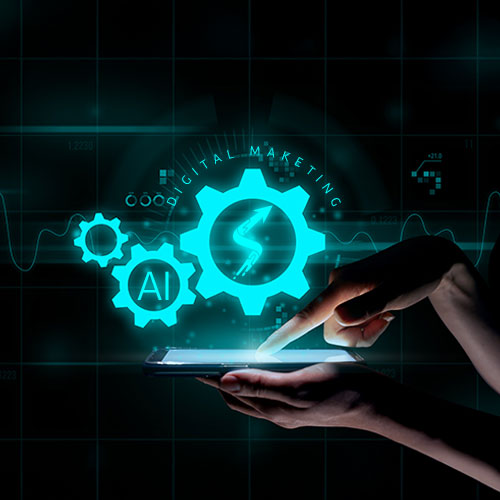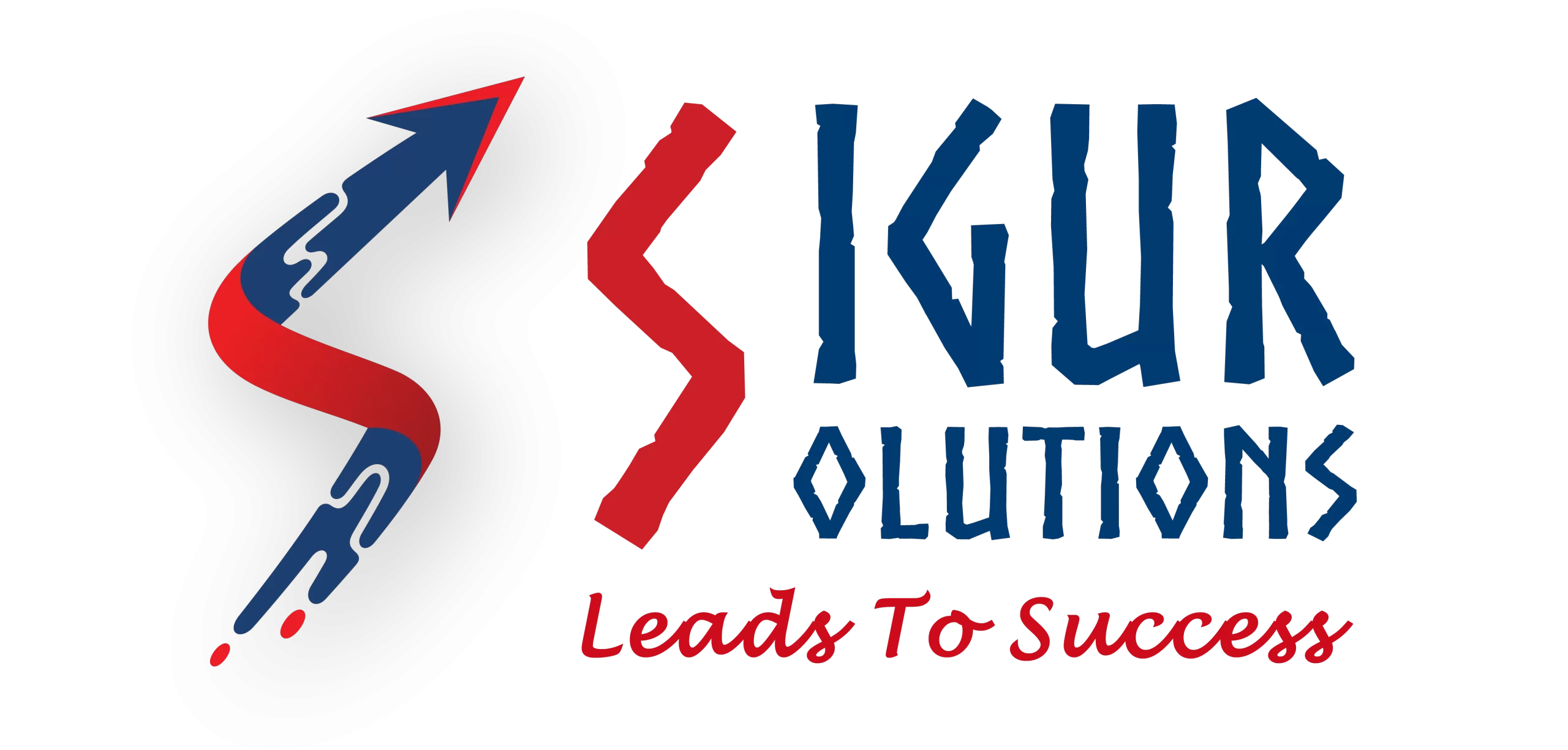How to Leverage AI in Digital Marketing for Business Growth

Artificial Intelligence (AI) is transforming the digital marketing landscape, enabling businesses to optimize campaigns, personalize customer experiences, and maximize efficiency. With AI-driven tools, brands can analyze data, automate tasks, and create hyper-targeted marketing strategies that drive better results.
In this blog, we’ll explore how businesses can effectively leverage AI in digital marketing to gain a competitive edge.
Why AI is Essential for Digital Marketing
AI is revolutionizing the way marketers interact with their audience. It provides deep insights, automates repetitive tasks, and enhances decision-making. Here are some key reasons why AI is crucial in digital marketing:
- Personalization at Scale – AI enables brands to tailor content and recommendations based on user behavior and preferences.
- Improved Customer Insights – AI-powered analytics tools process vast amounts of data to uncover patterns and trends.
- Automation & Efficiency – AI automates time-consuming marketing processes, allowing businesses to focus on strategy.
- Enhanced Customer Experience – AI-driven chatbots and virtual assistants offer instant, 24/7 customer support.
- Better ROI on Campaigns – AI helps optimize ad targeting, reducing wasted ad spend and improving conversion rates.
AI-Powered Strategies to Transform Digital Marketing
- AI-Driven Content Creation & Optimization
AI tools can generate high-quality content tailored to audience preferences. With AI-driven analytics, businesses can identify trending topics, optimize SEO, and create engaging blog posts, videos, and social media content.
Tools to Consider:
- ChatGPT and Jasper AI for content generation
- Clearscope and Surfer SEO for SEO optimization
- Grammarly and Hemingqway for content refinement
- AI-Powered Chatbots & Conversational Marketing
AI chatbots enhance customer interactions by providing instant responses, answering FAQs, and guiding users through the sales funnel. Conversational AI improves engagement, boosts conversions, and ensures customer satisfaction.
Tools to Consider:
- Drift and Intercom for AI-driven customer support
- ManyChat for automated chatbot responses
- HubSpot Chatbot Builder for lead generation
- AI for Email Marketing Automation
AI optimizes email marketing by analyzing subscriber behavior, predicting the best send times, and personalizing email content. It can also automate segmentation, ensuring the right message reaches the right audience.
Tools to Consider:
- Mailchimp’s AI-driven automation
- HubSpot Email Marketing for personalized campaigns
- Persado for AI-powered email copy generation
- AI in Social Media Marketing
AI-powered tools analyze audience behavior, suggest optimal posting times, and automate content scheduling. AI can also generate social media content ideas and monitor brand mentions in real-time.
Tools to Consider:
- Hootsuite and Sprout Social for AI-powered social media management
- Lately AI for AI-generated social media posts
- Brandwatch for AI-driven social listening
- AI-Enhanced SEO & Paid Advertising
AI optimizes SEO strategies by identifying high-ranking keywords, analyzing competitors, and improving search engine performance. In paid advertising, AI automates ad targeting, bid management, and audience segmentation for better ROI.
Tools to Consider:
- SEMrush and Ahrefs for AI-driven keyword research
- Google Ads Smart Bidding for AI-powered ad optimization
- RankBrain (Google’s AI) for search ranking improvement
- AI for Predictive Analytics & Customer Insights
AI-powered analytics tools help businesses predict customer behavior, understand buying patterns, and optimize marketing strategies based on data-driven insights.
Tools to Consider:
- Google Analytics 4 for AI-powered insights
- IBM Watson Analytics for predictive analysis
- Adobe Sensei for customer behavior insights
How to Implement AI in Your Digital Marketing Strategy
- Identify Marketing Goals – Define specific objectives such as improving engagement, increasing conversions, or enhancing customer experience.
- Choose the Right AI Tools – Select AI-driven solutions that align with your business needs and marketing channels.
- Integrate AI with Existing Systems – Ensure seamless integration with CRM, email marketing platforms, and analytics tools.
- Monitor & Optimize Performance – Continuously track AI-driven campaigns, analyze results, and refine strategies for better outcomes.
- Stay Updated on AI Trends – Keep up with evolving AI technologies and digital marketing innovations.
Leveraging AI in digital marketing enables businesses to streamline operations, enhance customer interactions, and drive higher conversions. By adopting AI-driven tools for content creation, chatbots, social media, SEO, and predictive analytics, brands can stay ahead of the competition and achieve long-term success.
Keywords: AI in digital marketing, AI-driven marketing strategies, AI for content creation, AI-powered chatbots, AI in SEO, AI marketing automation, predictive analytics in marketing.
Meta Title: How to Leverage AI in Digital Marketing for Business Growth
Meta Description: Discover how to leverage AI in digital marketing to enhance customer engagement, automate campaigns, and drive business growth. Learn AI-driven strategies today!




